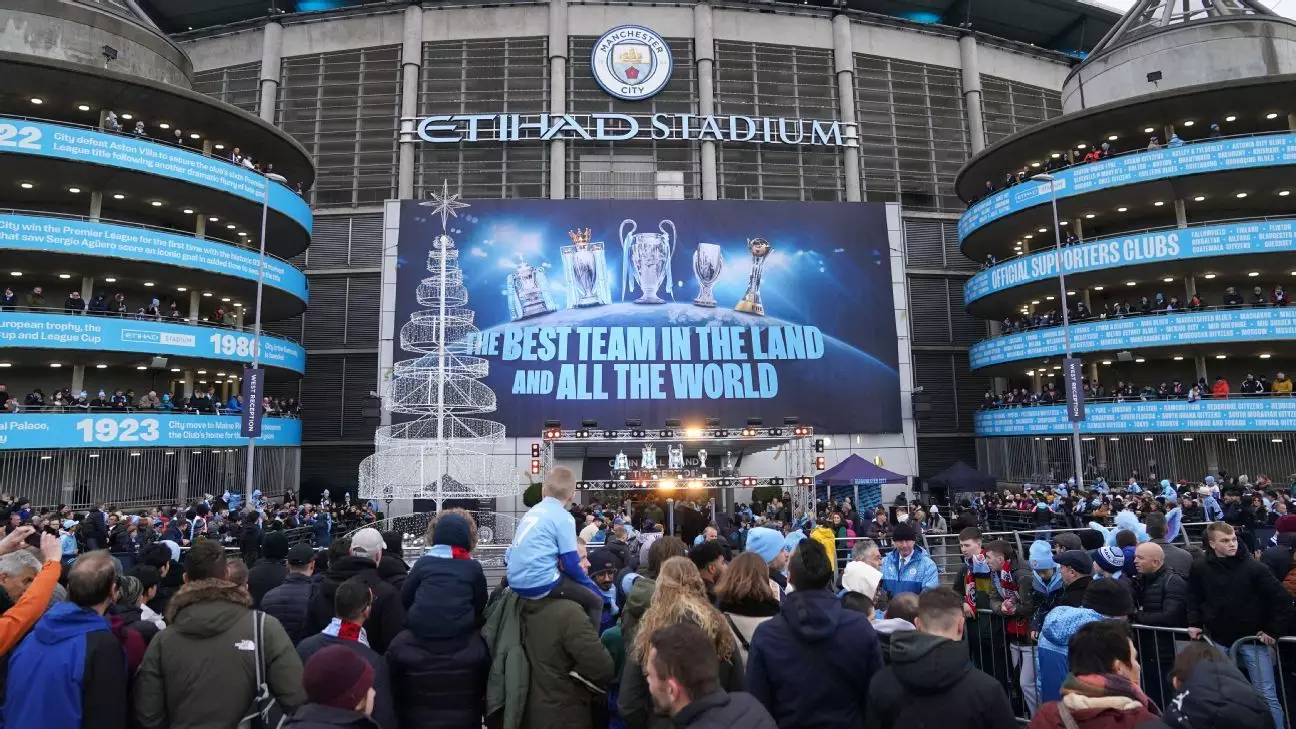The football world is bracing itself for a pivotal moment as Manchester City faces an independent hearing regarding an astonishing 115 alleged breaches of Premier League financial regulations. Scheduled to commence soon, this case has captured the attention of media outlets across Britain and beyond. Dubbed the “sports trial of the century,” the proceedings will unfold over several weeks, sifting through extensive evidence to deliver a verdict by the end of the season. As such, this hearing not only holds significant implications for Manchester City but also serves as a reflection of the broader issues surrounding financial governance within football.
The Charges Against Manchester City
The charges outlined against Manchester City span from 2009 to 2018, and they range from failing to provide accurate financial documentation to breaching established regulations. Specific allegations detail non-compliance in disclosing player and manager remuneration as well as failing to cooperate with investigations. These serious accusations raise questions not only about Manchester City’s practices but also about the integrity of financial reporting in football at large. When a club of Manchester City’s stature stands accused, the ramifications could influence other organizations within the sport, potentially reshaping the landscape of football finance.
The Historical Context
Manchester City is not new to facing scrutiny over its financial practices. In 2020, the club faced a two-year ban from the UEFA Champions League for allegedly inflating sponsorship revenue, an instance they successfully overturned through an appeal. This history of contentious relationships with governing bodies adds another layer to the current situation, as it suggests a pattern of alleged misconduct that raises credibility concerns. The outcomes of these proceedings could set a legal precedent that impacts how football clubs manage their financial practices moving forward.
If the independent commission finds Manchester City guilty of any of the charges, the club could be subject to a spectrum of penalties. These consequences may range from hefty fines to points deductions, or even relegation from the Premier League—an outcome that would surely cast a shadow over a club’s recent successes, which include eight Premier League titles, one Champions League trophy, and multiple domestic cups. Such severe repercussions would inevitably invoke debates on fair play and accountability in football, rekindling discussions about compliance and governance standards.
Views From Within the Club: Pep Guardiola’s Perspective
Amidst the swirling uncertainties, Manchester City’s manager, Pep Guardiola, publicly expressed his hopes for a swift resolution. His comments reflect a belief in the principle that individuals—and by extension, organizations—are innocent until proven guilty. Guardiola’s remarks not only underline his desire for clarity but also highlight the immense pressure significant legal challenges impose on players and management alike. The mental toll of such scrutiny could affect team performance, creating a cloud over their current campaign as they pursue their fifth consecutive league title.
The Broader Implications for Football Governance
This hearing arrives at a pivotal time for football governance as clubs grapple with the intricacies of financial fair play regulations. The Premier League’s ability to enforce these regulations has faced criticism, particularly as high-profile cases like Manchester City’s come to the fore. There is a growing demand among fans and analysts for more transparency and fairness in enforcement across the league. Clubs like Everton and Nottingham Forest have faced penalties for breaches, while lesser-known clubs have often missed out on significant support simply for being smaller in stature.
As the hearing gets underway, it is crucial for stakeholders at all levels—from football authorities to fans—to assess the outcomes carefully. Manchester City’s case will not only test the enforcement of financial regulations but also prompt necessary discussions regarding financial equity in football. Whatever the verdict, it is essential that lessons are learned to improve governance structures and foster an environment of compliance that safeguards the integrity of the sport.
As Manchester City embarks on this critical journey through the scrutiny of financial governance, the outcomes of these hearings are poised to influence football’s future. The central question remains: how will this pivotal moment redefine the relationship between clubs, leagues, and the overarching framework of football governance? The answers lie just weeks away.

